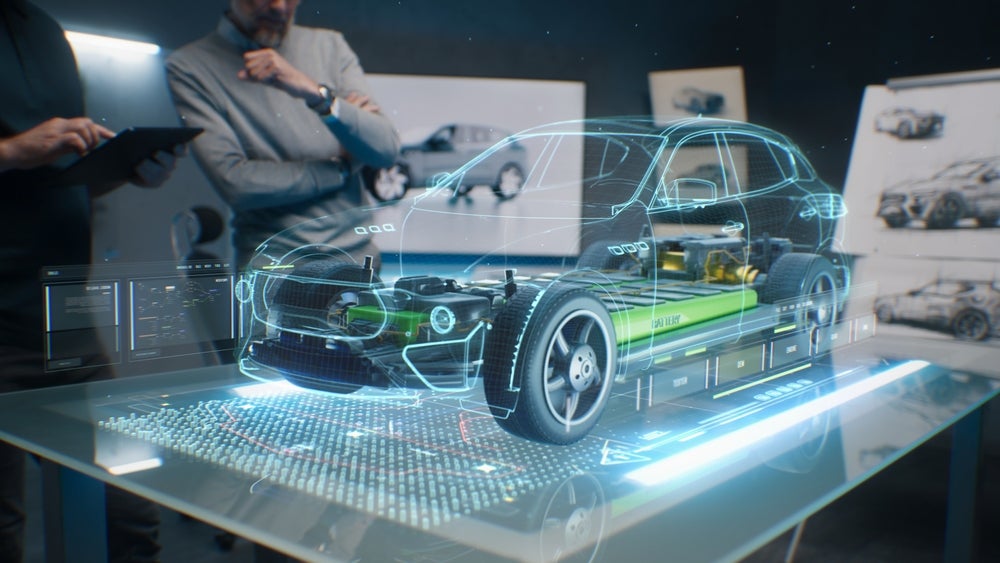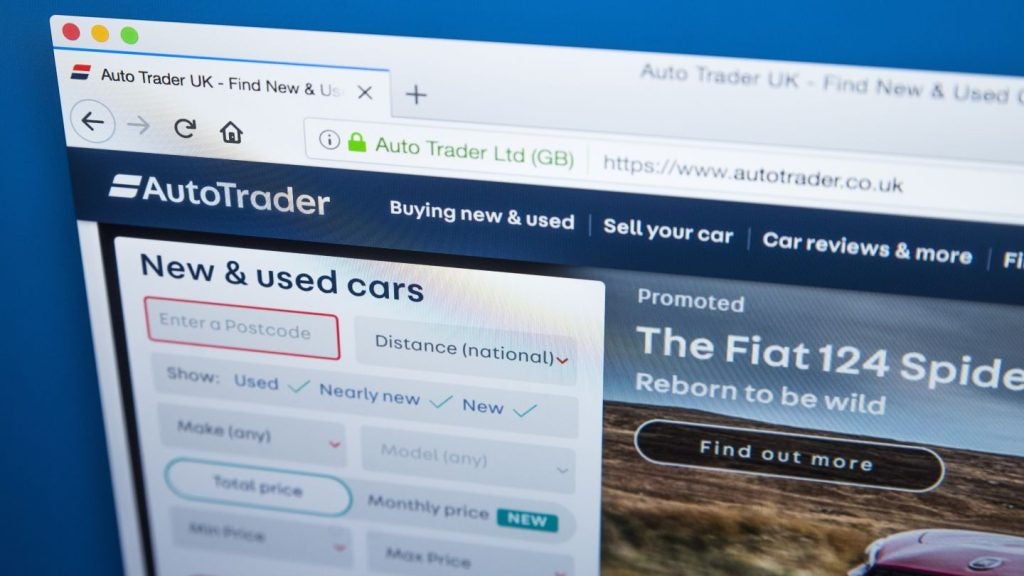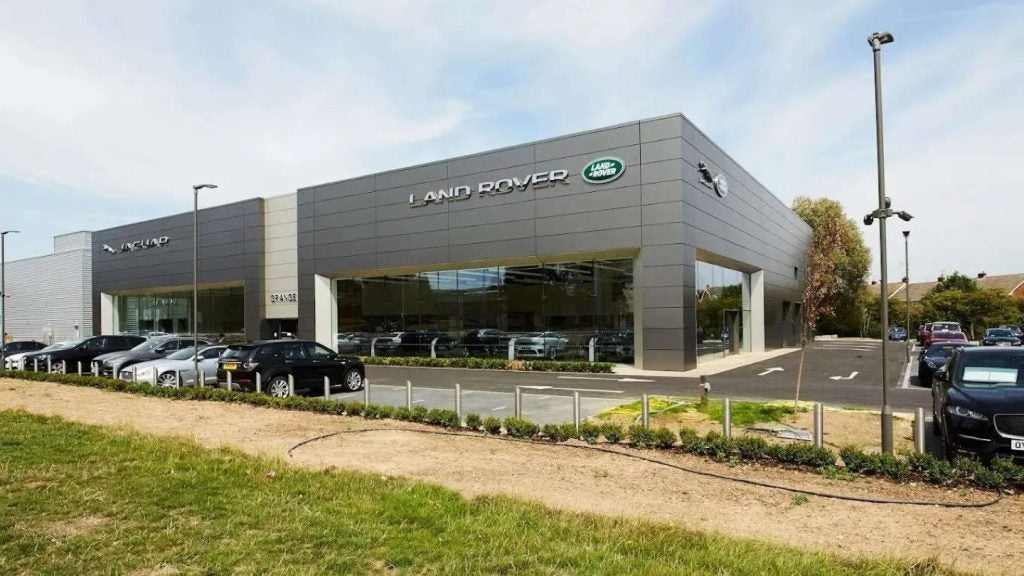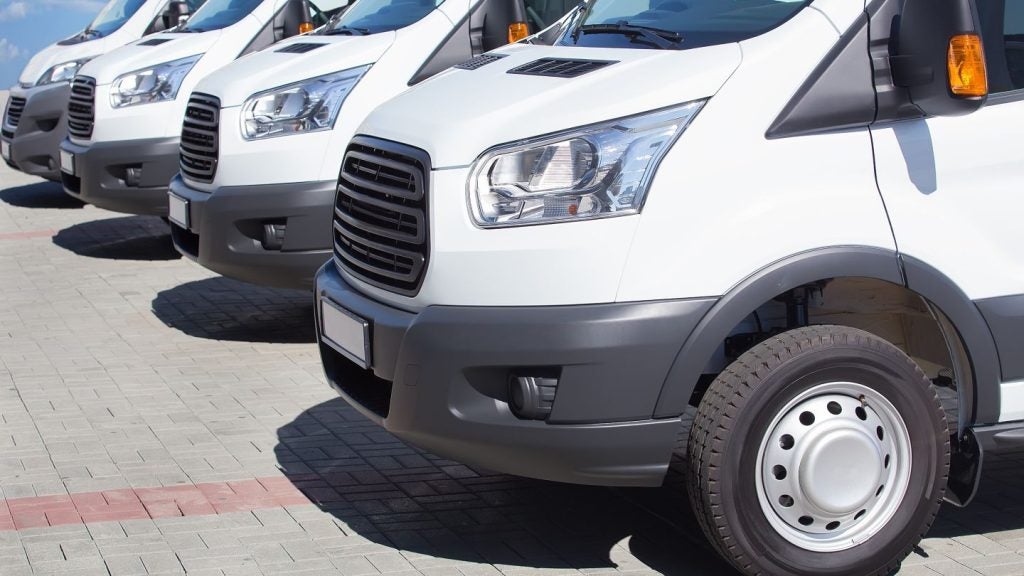
The year is 2035, and you want to buy a car. So how will you do that? The obvious answer is that the process will be far more online than even a 2025 consumer will recognise.
“I expect people to have completed even more of the process online,” says Phill Jones, COO of MOTORS.co.uk.
“Today you can build a car online, choose the make, model and accessories, to a large extent you can change in the colour of the car and build the interior, but with AI, I can just see that ability to display the car completely to the customer specification,” says Peter Cottle Consulting Director at Finativ, a firm providing support to business owners and leaders in the financial sector.
A natural byproduct of that growing online presence is a decline in the physical presence of car dealers.
“There is obviously an evolution going on with some of the car manufacturers in terms of their franchises. They may not have so many locations. Jaguar is already down to 20 dealerships from approximately 85. The industry might become more reliant on technology and the benefits it can bring, particularly with tools like AI,” Cottle says.
It is a vision shared by Simon Porri, CEO of Loop, the dealer performance management platform.

US Tariffs are shifting - will you react or anticipate?
Don’t let policy changes catch you off guard. Stay proactive with real-time data and expert analysis.
By GlobalData“Historically, you would go to the showroom for every part of that experience, now a lot of it is happening online,” Porri says. “The touchpoints with the dealer are reduced and the customer is more educated as well.”
The thing is, a marketplace is a two-sided structure; one side cannot change without the other. The customer is changing, learning and becoming more empowered through the tools it has access to.
“Customers are already highly informed, and this trend will only accelerate as online content, particularly on social media, continues to expand,” says Mike Fazal, CEO of Leasing.com.
“With dealers and OEMs integrating AI and VR technology, the ability to match vehicle options to individual lifestyle needs will become even more precise.”
However, others argue the core of the auto dealing business will stay the same.
“The technology in the cars has become exponentially better and bigger in every possible way, the dealerships have become fancier, but the generally underlying approach hasn’t changed a great deal,” says Paul Bennett, Senior Partner at Madox Square Advisory.
Indeed, while Fazal and Porri point to the possibilities of virtual test drives, immersive configurators and dealership-free browsing, Bennett argues for a little more scepticism.
“I thought over the last two years there might be more use of augmented reality for customers at home, but the price is still way out there for the goggles, and they haven’t really taken off,” he points out.
However, there is no denying the growing role of digital tools in the car-buying journey.
“Who doesn’t use the internet for everything these days? For researching and buying a car there’s a lot to arm yourselves with and to narrow down your choices,” Bennett says.
So, in your hypothetical car purchase in 2035, will you even set foot in a cart showroom? Bennett thinks so.
As he observes, “The vast bulk of consumers, be it new and especially used, want to physically see the car before they press the enter button on a keyboard.”
Bricks and mortar
When we came out of lockdown businesses in all sectors learned two things. One, that far more of customer relationships could be carried out online than previously thought, and two, that even then, customers value physically going to retail outlets and meeting real people. The word on everyone’s lips is “Experience”.
“The dealer’s role is about giving the customer an experience. That means touching and test-driving the product,” says Porri. “The relationship side of things is really important. We have seen that recently. There was a lot of excitement around the direct sales model and how that can change the buyer journey, but we have seen companies doing a complete reversal on that. Customers like the bricks and mortar and the face-to-face interactions. They want to experience the product.”
While the tools to choose and even customise a car online have broadened, people want to visit a showroom to examine the product, make a deal and discuss finance. This is true even as our ability to provide finance online improves.
“We are pretty good already. You can get finance online and sign it with an e-signature them,” Cottle says. “It is a good process, and I see it being enhanced further, but the dealer side of things should not be dismissed.”
As empowered and educated as customers are they are still keen to engage with a real brick-and-mortar showroom.
“I still see the desire to go and talk to a dealer, especially around specialised products such as a Porsche, a Bentley or higher spec BMWs,” Cottle says. “Covid forced a lot of dealers to have that ability to transact remotely and adapted to that really well. That will be a growing percentage, but equally I think most people wanting to go and see a car.”
But that does not mean that the showroom of 2035 will look like the showrooms you are familiar with. The OEM-owned single-brand giants we see now may be on the way out.
“With legacy western manufacturers under such commercial pressures from new Chinese manufacturers, there will be more multi-brand showrooms,” Bennett says.
Fazal offers one version of what that showroom might look like.
“Physical dealerships will shift from large inventory centres to experiential hubs— this could be expanded to include high-tech test-drive centres, or even multi-brand ‘car experience zones,’” Fazal says. “Customers will visit mainly for final validation, servicing, or unique brand experiences – but at the same time, more customers will become willing to transact online, particularly when customers want more flexibility around finance options such as leasing rather than traditional ownership finance like PCP.”
Once again, the way the market evolves with be a response to customer behaviour as much as dealerships.
“Customers have voted with their clicks, if not their feet,” Jones says. “When consumers reserve cars online or book test drives, they like the idea they are not losing the opportunity or committing to the purchase. The physical retail experience still plays a big role.”
The human touch
It is not just the physical experience, but the social experience that has always been a core part of the car purchasing journey.
“It used to be that it was very much about getting the customer in the showroom to influence their buying process through upselling or introducing them to add-ons,” Porri says. “Now that is changing, technology is going to be the way to do that.”
“It’s really interesting, isn’t it?” says Cottle. “I don’t think anyone knows exactly where that’s going to go.”
One possibility is an evolution away from a more adversarial dealer/customer relationship, into a more consultative role.
“An initiative Mercedes and BMW started a few years ago was that the BMW network had something called ‘Geniuses’, in the vein of the Apple Genius Bar,” Bennett says. “Mercedes Benz had ‘Star Consultants’. These were younger people in their early 20s, not salespeople but people highly skilled with product knowledge who could engage with customers in a non-combative way. Someone not tasked with sales but truly serving a customers’ needs. I think it’s a shame that model seems to have withered on the vine.”
That said, the incentives driving car dealers are under more scrutiny now than ever.
“I think there will be pressure to reduce the other incentives, and in particular, it should move to more of a typical retail experience with less commission on the individual,” Jones says.
However, while the “Genius” model has not become widely adopted, the role of expert consultant has continued to grow.
“It will vary depending on the brand,” Cottle says. “High-value brands will become more consultative, experts in their product knowledge.”
Fazal agrees, telling us, “Salespeople will become more like brand consultants and customer experience specialists, helping buyers navigate software-based vehicle features as well as complex financing or subscription offerings.”
At the same time, that knowledge base is constantly expanding.
“There is a lot of pressure on staff around EVs,” Porri points out. “The expectations and the amount of knowledge staff need to ingest are huge. Customers have concerns about range anxiety, the cost of EVs, the size of the network for charge points. Dealers are selling an entirely new product to a new kind of customer.”
That new kind of customer will also expect a more seamless, joined-up experience.
“People will be more comfortable talking to one person about the whole transaction. The salesperson needs to be armed with the whole process,” Cottle adds. “What’s important today and in the future is to be aware what’s going on in the customers’ online world. The most frustrating thing would be to do most of the transaction online and come into the showroom anticipating staff would know what you have been doing and receive a disappointing experience because nobody is expecting you.”
Big data
The future of car dealerships is not just about expertise, it is about data. Fazal argues that future car users will have access to products such as autonomous vehicles, real-time data-sharing for smarter pricing and even insurance based on usage rather than annual policies. But these new, better-informed customers are going to have concerns about that data.
“You’ve got to give information to the salesperson for them to help you, but consumers feel concerned about giving up too much information in case it is fired back against them,” Bennett cautions.
The big change for customers will hopefully be about giving customers more power over their own data.
“Each car I look at I have to go through a new credit check application form, filling in all the details,” Jones says. “As a consumer, if you own that data and retain the rights to it, you can grant access to it as needed rather than repeatedly completing a very linear process. This stuff should be easier and transferrable.”
Bennett tells us, “We’ve seen a lot more light shed on data security and who ‘owns’ the customer – the answer is the customer owns the customer, not the manufacturer, the retailer or financer.”
That data is going to become even more important in light of the one word that is on everybody’s lips these days.
“AI gets used a lot as a buzzword, but I think it will become more prevalent in the buying journey,” Porri says.
“AI-powered recommendations will not only suggest suitable vehicles but also tailor leasing options based on predicted usage, affordability, and personalised financial plans,” Fazal suggests. “There could even be AI-powered negotiation.”
At first glance “AI” powered car finance might seem like a massive liability, but the FCA is surprisingly in favour, taking an “outcomes-focused approach” that gives firms flexibility to adapt to technological change and market developments. The FCA’s AI update in April last year set out how risks associated with the technologies known as “AI” can be mitigated within the FCA’s existing regulatory frameworks. The bottom line is that car lenders and brokers are free to use AI but must still comply with FCA requirements.
“The more difficult challenge would be assessing the vulnerability of the customer, at the lower end of the market,” Cottle says. “If a human is talking to someone in the showroom, they should have the ability to say this customer needs a bit more guidance. I question whether AI would have the ability to do that.”
The new ownership
Data will also become more valuable as different models of ownership come into play, and that is a shift that has already happened.
“More customers opting for flexible, on-demand car access rather than traditional ownership,” Fazal says. “From short term microleasing to long term leasing over 12 months or more.”
Bennett, however, does not see anything new in these financing models.
“There is a lot of chatter about mobility. Whether you call it mobility, subscription, or bundled services, it is the same idea,” Bennett says. “Subscription hasn’t turned a profit anywhere in the UK since its inception. It’s just another version of a rental product.”
But with the cost of living rising, as well as the cost of EVs, it may prove to be an inevitability.
“Finance has already become even more important. The expensive nature of an EV means less customers will purchase that outright, so that is a key factor,” Porri says. “Studies have also shown vehicles bought with finance are more likely to renew at the end of finance agreements so they’re great tools for retention. Digital tools are changing. If you have done well, you should be offered finance options as you go, but we will need to be even more joined up in terms of field teams, head office teams, and the dealers.”
“With the UK’s commitment to achieving net-zero emissions and the impending 2030 ban on new petrol and diesel car sales, there’s a growing interest in EV leasing,” Fazal adds. “Government incentives and a broader selection of EV models are encouraging both businesses and consumers to consider leasing electric and hybrid electric vehicles, particularly as it removes the risks associated with vehicle depreciation.”







